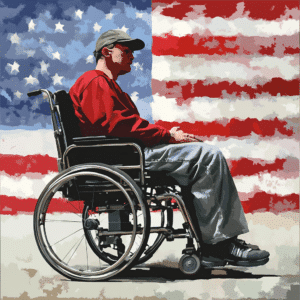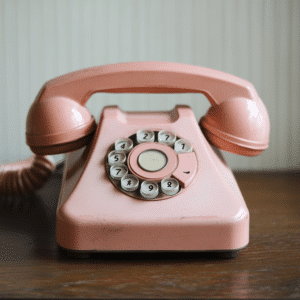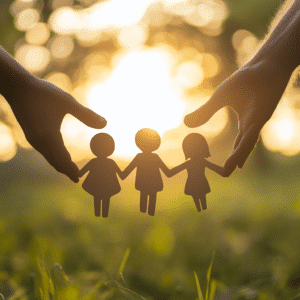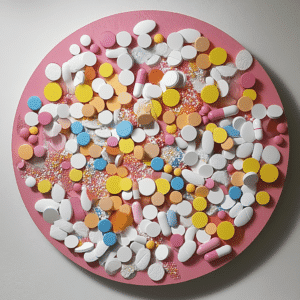The journey of addiction is often riddled with pain, resentment, and the heavy burden of loss. For many parents, grappling with their child’s addiction or the devastating impact of losing a child can lead to an emotional storm that feels never-ending. Practicing forgiveness becomes a vital compass in this chaotic landscape—a means to let go of anger and resentment that can consume us. At Mothers Against Addiction, we aim to support you in this arduous journey. By understanding the essence of forgiveness, adopting strategies to practice it, and recognizing its transformative power, you can begin to heal and move forward together with your loved ones.
Understanding the Essence of Practicing Forgiveness in the Context of Addiction
Forgiveness is not a one-size-fits-all concept. In the context of addiction, it means making an intentional choice to release feelings of resentment—even towards yourself. It may never erase the pain that addiction has inflicted, but it can diminish its hold over you. Research from Mayo Clinic shows that forgiving others reduces anxiety and depression, fostering better mental health. Conversely, self-forgiveness is equally essential; understanding your own grief and pain enables you to forgive others more genuinely.
It’s crucial to differentiate between interpersonal forgiveness, which involves letting go of resentment toward another person, and self-forgiveness, a journey of compassion directed inward. Acknowledging the role self-blame plays in your emotional wellbeing creates space for healing. Recognizing that you cannot control someone else’s choices can empower you to free your heart from guilt and shame, allowing you to move forward.
Practicing forgiveness can help alleviate the shame many parents feel when their child struggles with addiction. If you find yourself weighed down by feelings of blame, the first step is to acknowledge it. It’s okay to feel hurt and angry—that’s human. But using forgiveness as a tool can help you process those emotions in a healthier way, respecting both your feelings and your child’s choices.

Top 7 Strategies for Practicing Forgiveness to Heal Together
1. Acknowledge Your Feelings
The first step in practicing forgiveness is to acknowledge the emotional rollercoaster that addiction can bring. Whether it’s anger, sadness, or disappointment, processing these feelings is vital. For instance, Mary, a mother whose son once battled addiction, shared her story of confronting her feelings. Initially filled with rage and shame, Mary found catharsis in journaling and expressing her true emotions. Eventually, this led her to practice forgiveness, enabling her to remember her son’s good moments without the constant cloud of resentment.
2. Engage in Open Communication
Communication can act as a bridge to rebuilding trust. Families impacted by addiction often struggle to connect, making open dialogue essential. One couple featured in the powerful documentary “The Anonymous People” spoke candidly about their recovery journey, highlighting how sharing feelings—both positive and negative—helped them heal. Learning to listen, empathize, and express feelings without judgment can restore relationships previously fractured by addiction.
3. Seek Professional Guidance
Therapy can be a pivotal part of the forgiveness journey. Professionals, particularly those specialized in family dynamics surrounding addiction, can provide invaluable tools and resources. For instance, a family undergoing group therapy learned to express their feelings in a safe space. The sessions guided them toward understanding one another’s roles in their pain, fostering an environment ripe for forgiveness.
4. Embrace a Mindfulness Practice
Engaging in mindfulness is another essential strategy in practicing forgiveness. Mindfulness encourages living in the moment, which can help forgo grudges and emotional baggage. A study from Harvard highlighted how mindfulness Practices can improve emotional regulation and reduce negativity. Participants in retreats organized by the Center for Mindful Living shared stunning transformations—all thanks to the sweet embrace of mindfulness.
5. Create a Forgiveness Ritual
Creating tangible rituals can help families symbolize their commitment to practicing forgiveness. One touching story we encountered involved a family who released lanterns annually in honor of their lost child. This beautiful act represented letting go of pain while embracing unity and love. Rituals can take many forms—from writing letters expressing forgiveness to celebrating the loved one’s life together.
6. Support One Another
Community support plays a key role in the forgiveness process. Organizations like Al-Anon exist to provide families with tools necessary for navigating the difficult waters of addiction. Many members have shared testimonials about how their journeys toward forgiveness blossomed in group settings, often turning shared pain into collective healing.
7. Cultivate Gratitude
Gratitude shifts our lenses, illuminating the good amidst the chaos of addiction. Practicing gratitude can be profoundly healing, allowing you to focus on the positives even during tough times. Renowned psychologist Martin Seligman emphasizes how gratitude can significantly improve mental well-being. By incorporating small gratitude exercises into daily life, parents can cultivate a mindset that supports forgiveness.
The Transformative Power of Forgiveness in Moving Forward
Practicing forgiveness can fundamentally alter how relationships evolve after addiction. By releasing resentment, families often find themselves in richer, more meaningful connections. Anecdotal narratives abound, showcasing families who’ve regained stability and love after navigating through addiction-driven turmoil. It all starts with forgiveness—a powerful tool to alter one’s perspective and way of living.
The ripple effect of embracing forgiveness extends beyond individual relationships, impacting broader community dynamics. Families can build a network of support, sharing their stories and facilitating healing on multiple levels. Ultimately, the key lies in transforming pain into compassion, fostering a space that allows love and understanding to flourish.

Innovative Tools for Practicing Forgiveness
With technology at our fingertips, numerous applications and platforms can support your forgiveness journey. Apps like Journals For Personal growth provide prompts that can help articulate feelings and reflections. Alternatively, the trending “Forgiveness Challenge” on social media inspires individuals to share their journeys and connect with others.
In a world often weighed down by loss, Practicing forgiveness becomes a powerful tool in the healing process. It allows families to honor their pain while also embracing the possibility of joy. At Mothers Against Addiction, we strive to be that guiding light on your path to healing, reminding you to let go of the burdens holding you back. As you embark on this transformative journey, remember: healing is not merely possible; it is an implicit promise waiting for you.
Practicing Forgiveness
The Power of Letting Go
Practicing forgiveness can be one of the most liberating experiences for anyone, especially parents facing the heartaches of addiction, whether it’s within their child or as a result of loss. Studies have shown that those who practice forgiveness tend to experience lower levels of stress and anxiety, boosting their overall well-being. Just like the transformation in the anime world, where characters can evolve into forms like super super Saiyan blue, embracing forgiveness can propel individuals into new, uplifting emotional states.
Interestingly, daily motivation can make a world of difference in this journey toward forgiveness. For many, engaging with resources like Daily motivation For sobriety can act as a guiding light. It reminds us that we can lift ourselves out of darker moments by focusing on the positive and choosing to forgive. Each step, no matter how small, contributes to a larger healing process. It’s akin to discovering a rare treasure in a blind box — you never truly know what profound insights lie beneath the surface.
Healing Together
Another fascinating aspect of practicing forgiveness is its contagious nature. When one person chooses to forgive, it can inspire others to do the same, creating a ripple effect throughout families and communities. This concept might remind you of movies like Misión Diplomática, where characters must wrestle with their past while forging new paths forward. Each act of forgiveness becomes a stepping stone, not just for individual healing but for collective growth as well.
Moreover, stories from remarkable figures can inspire us in this journey. Just take a look at Jamie Lee curtis young — her experiences remind us that even celebrities have faced struggles and emerged stronger through forgiveness. Sharing these narratives, like the powerful voice of Kayla Sen, reinforces the idea that we’re not alone in our battles. So, why not embrace forgiveness today and see how it can transform your life and those around you? After all, healing begins with us, and practicing forgiveness could just be the key to unlocking a brighter horizon.

What does it mean to practice forgiveness?
Practicing forgiveness means making a conscious choice to set aside anger and resentment toward someone who has hurt you. It’s about letting go, even if the memory of the hurt remains, which can help bring you peace.
What are the 4 stages of forgiveness?
The four stages of forgiveness are hate, hurt, heal, and come together. This model helps guide you from the initial pain and anger to a point where you can reconnect, either with the person or with yourself.
Why can’t I forgive easily?
Forgiveness can be tough if you’re blaming yourself for what happened, even a little. Those feelings can be like a wall between you and the act of forgiving someone else, so self-compassion is key.
How to actively practice forgiveness?
To actively practice forgiveness, start by acknowledging your feelings, reflecting on the situation, and maybe even communicating with the person involved. Gradually, you can work on letting go of those negative emotions.
What are the 7 steps of forgiveness?
The seven steps of forgiveness typically include acknowledging the hurt, reflecting on the emotion, understanding what happens, taking responsibility if needed, expressing your feelings, choosing to forgive, and finally, letting go.
What is the golden rule of forgiveness?
The golden rule of forgiveness is to treat others the way you’d like to be treated. By putting yourself in someone else’s shoes, it can make it easier to forgive.
What are the 5 R’s of forgiveness?
The 5 R’s of forgiveness are recognize the hurt, reflect on the impact, redirect yourself toward healing, release the burden, and rebuild trust if possible. These steps can guide you through the process.
Can you forgive but still be angry?
Yes, you can forgive but still feel angry. It’s normal for those emotions to linger even after you’ve made the decision to forgive someone, and it shows that healing takes time.
What are the 4 D’s of forgiveness?
The four D’s of forgiveness are decision, dialogue, development, and dedication. These steps highlight the commitment it takes to forgive and move forward after being hurt.
What is toxic forgiveness?
Toxic forgiveness happens when someone pretends to forgive but actually buries their feelings or maintains resentment. This approach doesn’t lead to true healing and can be harmful in the long run.
What causes lack of forgiveness?
A lack of forgiveness can be caused by various factors, such as unresolved anger, self-blame, or the belief that forgiving lets the other person off the hook. These feelings can hold you back from finding peace.
What do you call a person who never forgives?
A person who never forgives might be referred to as bitter or resentful. They often carry the weight of past hurts, which can affect their relationships and overall well-being.
How to truly forgive and let go?
To truly forgive and let go, you need to face the hurt, work through your feelings, and consciously decide to release your anger. It’s like shedding a heavy coat that no longer serves you.
What is the best quote for forgiveness?
The best quote for forgiveness is “To err is human; to forgive, divine.” This highlights the importance and the beauty of forgiveness in the human experience.
When someone doesn’t forgive you?
When someone doesn’t forgive you, it can be tough, but it’s important to respect their feelings. Fine-tuning your empathy and patience can help you understand their perspective while allowing them the space they need.
How do Christians practice forgiveness?
Christians practice forgiveness by following Jesus’ teachings, emphasizing love, compassion, and grace. They often seek to forgive others just as they believe they have been forgiven by God.
How to practice self-forgiveness?
Practicing self-forgiveness involves acknowledging your mistakes, treating yourself with kindness, and understanding that everyone slips up sometimes. It’s important to learn from the experience and move forward.
What is the spiritual practice of forgiveness?
The spiritual practice of forgiveness is often about letting go of grudges and seeking inner peace. It can involve prayer, meditation, or reflection to help release negative feelings and cultivate compassion.
What is the true meaning of forgiveness?
The true meaning of forgiveness is realizing that it’s less about the person who hurt you and more about freeing yourself from the heavy burden of anger and resentment. It’s a gift you give to yourself.




























